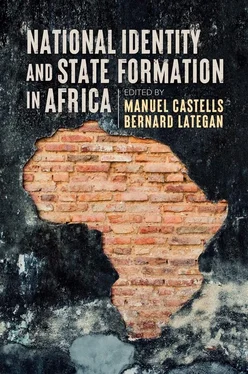Nothing short of convivial scholarship would do justice to the legitimate quest for a reconfiguration of African universities and disciplines of knowledge.
A truly convivial scholarship doesn’t seek, the way Rhodes and Kruger did, to define and confine Africans into particular territories or geographies, racial and ethnic categories, classes, genders, generations, religions or whatever other identity marker is in vogue.
Convivial scholarship confronts and humbles the challenge of over-prescription, over-standardization and over-prediction. It is critical and evidence-based, just as it is critical of the sources of evidence. It is a scholarship that sees the local in the global and the global in the local. It brings them into informed conversations, conscious of the hierarchies and power relations at play at both the micro and macro levels of being and becoming.
Convivial scholarship challenges us – however grounded we may be in our disciplines and their logics of practice – to cultivate the disposition to be present everywhere at the same time. It’s a scholarship that cautions disciplines, their borders and gatekeepers to open up and embrace differences.
With convivial scholarship, there are no final answers. Only permanent questions and ever exciting new angles of questioning.
Whether afflicted by amakwerekwere , or by Uitlanders or both, Frantz Fanon perceptively predicted in the nascent years of post-colonial nationalisms in Africa that citizenship, ‘instead of being the all-embracing crystallization of the innermost hopes of the whole people, instead of being the immediate and most obvious result of the mobilization of the people’, turns out, under narrow nationalism, to be ‘only an empty shell, a crude and fragile travesty of what it might have been’ with a greater sense of inclusiveness.
The making of contemporary South Africa is the story, par excellence, of visible and invisible mobilities. Official and popular discourses are infused with a deep suspicion of those who move, particularly those moving to urban areas and between countries and continents. Freedom of movement, especially by people deemed to be less endowed economically, is perceived by those who consider themselves more economically gifted as potentially disastrous and thus needing to be contained at all costs and against all odds.
Intended or not, racism and xenophobia are among Rhodes’s lasting legacies in South Africa. To consolidate his grip on the bodies, minds and souls of his newly found lands, Rhodes and his progeny erected statues and monuments in his honour. Rhodes and his acolytes named places, things and people after him, to ensure that he, like Dracula with a drop of blood, would continue to reactivate himself into life eternally, even when physically he was no more. This is exactly what has come to pass, with the addition of memorials and related symbols of recognition, such as the Rhodes Trust and Rhodes Scholarships housed by Rhodes House at Oxford University.
Let’s hope that those people who have benefitted and will benefit from the Rhodes Scholarship will help lead the way in imagining and enforcing conviviality between autochthony and cosmopolitanism in geographies of surging turbulence.
Конец ознакомительного фрагмента.
Текст предоставлен ООО «ЛитРес».
Прочитайте эту книгу целиком, купив полную легальную версию на ЛитРес.
Безопасно оплатить книгу можно банковской картой Visa, MasterCard, Maestro, со счета мобильного телефона, с платежного терминала, в салоне МТС или Связной, через PayPal, WebMoney, Яндекс.Деньги, QIWI Кошелек, бонусными картами или другим удобным Вам способом.












